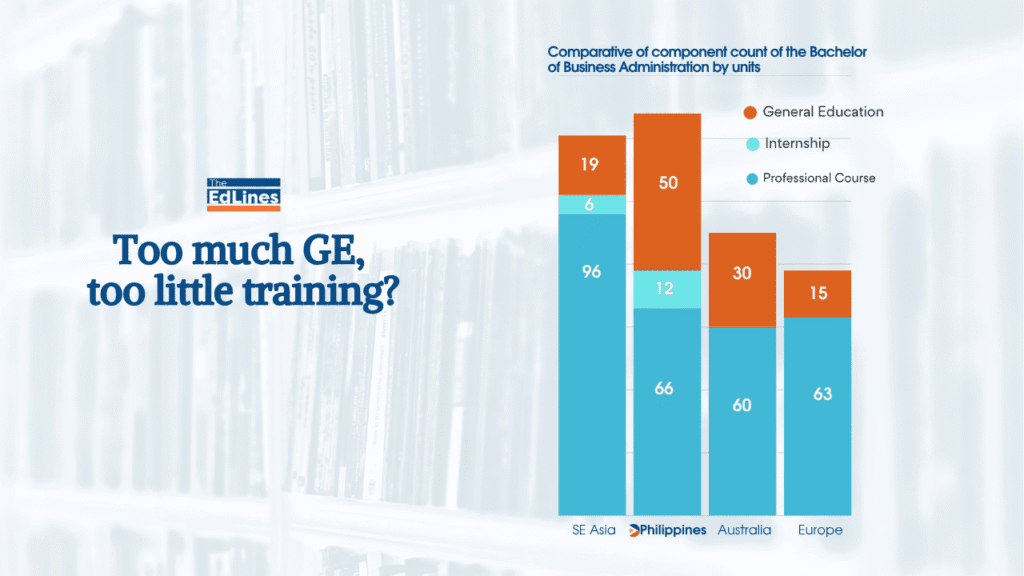
The Philippine higher education curriculum continues to place disproportionate emphasis on general education (GE) subjects while providing limited opportunities for hands-on training and internships, according to findings presented during a House Committee on Basic Education hearing this week.
Dr. Edizon Fermin, chair of the Commission on Higher Education (CHED) Technical Panel for Teacher Education, flagged what he described as a structural imbalance in the design of college programs.
“Currently, approximately 42 percent of credit units in our higher education programs are allocated to GE courses,” Fermin said.
This results in graduates who, in effect, possess only a minor in their core discipline, as the exit courses in key fields are often repeated across programs despite established college readiness standards, he added.
Fermin recommended that selected GE subjects be transferred or “downloaded” to the Senior High School (SHS) curriculum to reduce redundancy and shorten the time to complete a college degree. He estimated that such a reform could trim program durations by at least one semester, facilitating earlier graduation.
The suggestion aligns with early findings from a Philippine Institute for Development Studies (PIDS) research cited by Education Commission 2 (EDCOM 2) Executive Director Karol Mark Yee.
“The PIDS study shows that Philippine college curricula, on average, exceed international benchmarks set by ASEAN, Australia and the European Union,” Yee said. “Many of our bachelor’s programs are ‘GE-heavy and internship-light.’
This, according to Yee, results in students accumulating more units than their counterparts abroad, without a commensurate increase in practical training.
EDCOM 2 Co-Chairperson and Committee Chair Rep. Roman Romulo also referenced the PIDS study, noting that prior efforts to reduce GE units were ultimately undermined by the addition of new requirements by CHED’s technical panels.
“The thing is we went over and beyond, ang daming dinagdag, ang dami ring nahirapang makatapos,” he said.
In response to these findings, the Department of Education (DepEd) presented its updated SHS curriculum, which reduces the number of core subjects to five, aligning them more closely with CHED’s GE requirements. According to DepEd, this redesign seeks to ease the college academic load by addressing overlaps and redundancies.
Beyond the core curriculum, DepEd plans to offer a structured set of elective subjects tailored to students’ academic or career pathways. The intent is to make students both college- and job-ready by providing more relevant, interest-driven options.
However, lawmakers expressed concern that an overly flexible elective system could lead to gaps in foundational knowledge, ultimately requiring students to repeat essential subjects in college.
Representative Stella Quimbo emphasized the need for a more calibrated approach. While it’s important to allow students choice, Quimbo said it must be carefully managed to ensure foundational competencies are not compromised..
CHED assured the committee that it is working closely with DepEd to embed key GE competencies into the SHS curriculum and is currently reviewing higher education programs to eliminate duplication.
According to Yee, collaboration between the two agencies is essential. “CHED and DepEd need to jointly develop a framework that ensures SHS electives align with college prerequisites while allowing flexibility,” he said.
“The goal is to ensure that the electives students choose in SHS can meet potential prerequisite requirements for college, while also allowing their other elective choices to be credited later on,” he said.
Romulo concluded the hearing by confirming that three GE subjects—under Arts, Araling Panlipunan and GMRC—have already been integrated into the SHS curriculum. This could potentially remove the need to take them again in college, reducing the overall load by as much as one semester.

